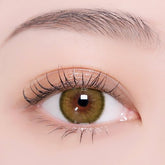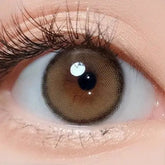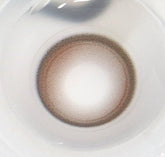-
Vendor:OLENS
Olens Anna Sui Dolly Girl Tint Brown
Olens Anna Sui Dolly Girl Tint Brown – Biweekly Brown Contacts for a Soft & Feminine Look Meta Description: Shop Olens Anna Sui Dolly Girl Tint Brown contact lenses with a soft, feminine brown tint. Featuring 48% water content, biweekly wear, and prescriptions from...- $33.00
$46.00- $33.00
- Unit price
- per
Save $13.00
- Home
- New Arrivals
-
- Colored Contacts
-
Shop by Brand
- Shop by Brand
- OLENS
- LENSTOWN
- I-DOL LENS
- COCOVIEW
- I-SHA
- LENSRANG
- LENSVERY
- INTEROJO
- Bausch + Lomb
- BY COLOR
-
For Disposable
- For Disposable
- Daily Contacts
- Monthly Contacts
- Biweekly Contacts
- 6 Months Contacts
-
By Effects
- By Effects
- No Black Rim
- Reduced Pupil
- Enlarging Contacts
-
BY GRAPHIC DIAMETER
- BY GRAPHIC DIAMETER
- 11.9mm - 12.4mm
- 12.5mm - 12.9mm
- 13.0mm - 13.4mm
- 13.5mm - 13.9mm
- 14.0mm - 14.5mm
-
BY MATERIAL
- BY MATERIAL
- HEMA
- Silicone Hydrogel
- Phosphorylcholine
- PC + Silicone Hydrogel
- BY WATER CONTENT
- BY BASE CURVE
- Circle Lenses
- Contact Lenses
- Toric Contact Lenses
- Top Picks
- Login
- Creat Account
- Get in Touch
Biweekly Contacts
The Convenience and Comfort of Biweekly Contacts
Contact lenses have transformed the way people correct their vision, offering comfort and convenience. Among the various types of contact lenses available, biweekly contacts strike a balance between the daily disposables and monthly lenses. In this article, we'll explore the world of biweekly contacts, understanding what makes them unique and why they might be the ideal choice for your vision needs.
What Are Biweekly Contacts?
Biweekly contacts, also known as 2-week disposable contact lenses, are lenses that are designed to be worn continuously for up to two weeks before they are replaced with a fresh pair. These lenses provide an excellent compromise between daily disposables and monthly lenses, offering comfort, convenience, and cost-effectiveness.
Benefits of Biweekly Contacts
1. Extended Wear: Biweekly contacts can typically be worn continuously for up to 14 days, reducing the need for frequent replacements and lens changes.
2. Cost-Efficiency: Compared to daily disposable lenses, biweekly contacts often cost less on an annual basis, making them an economical choice for regular wearers.
3. Convenience: While they require more maintenance than daily disposables, biweekly contacts are still relatively easy to manage. You'll need to clean and store them each night but won't have to worry about daily replacements.
4. Reduced Allergen Buildup: Biweekly contacts accumulate fewer allergens and deposits compared to monthly lenses, contributing to better eye health, especially for those with allergies.
5. Prescription Options: Biweekly contacts are available in various prescriptions, including nearsightedness (myopia), farsightedness (hyperopia), astigmatism, and multifocal designs for presbyopia.
6. Great for Occasional Wear: If you don't wear contacts every day, biweekly lenses provide flexibility. You can wear them as needed without the pressure to use them daily.
Caring for Biweekly Contacts
While biweekly contacts are less demanding than daily disposables, proper care is essential to maintain eye health:
-
Clean Hands: Always wash your hands thoroughly before handling your lenses.
-
Cleaning Solution: Use a recommended contact lens solution to clean and store your lenses each night. Follow the instructions provided.
-
Replace as Scheduled: Stick to the prescribed replacement schedule of every two weeks. Avoid using lenses beyond their intended lifespan.
-
Regular Eye Exams: Schedule routine eye exams with your eye care professional to monitor your eye health and ensure your prescription remains accurate.
-
Consult Your Eye Care Professional: Discuss your options with your eye care provider to determine if biweekly contacts are suitable for your specific needs.
Conclusion
Biweekly contacts offer a balanced approach to vision correction, providing comfort, convenience, and cost-effectiveness. Whether you wear them daily or occasionally, these lenses offer flexibility without compromising your eye health. Consult with your eye care professional to explore whether biweekly contacts are the right choice for your vision requirements.
The Popularity of Korean Colored Contact Lenses: Inspired by KPOP Idols
Korean colored contact lenses have surged in popularity, largely thanks to the influence of KPOP idols. These idols, known for their dynamic style and constant fashion evolution, often incorporate colored contact lenses into their signature looks. Fans worldwide are quick to emulate their favorite idols, making colored contacts a must-have accessory.
The KPOP Connection
KPOP idols are renowned style icons who captivate fans with their striking appearances. Colored contact lenses allow them to effortlessly change their eye color, making them a central element of their unique styles.
KPOP idols frequently shift between different concepts and images. Colored contact lenses provide the flexibility to match their eye color to their desired look, whether for stage performances or daily life.
What Sets Korean Colored Contact Lenses Apart
Korean colored contact lenses prioritize quality and safety. Manufactured by reputable companies, they adhere to strict international health standards and hold certifications from organizations like the U.S. FDA, ISO, and CE, ensuring they are safe for your eyes.
Korean colored contact lenses are genuine and undergo rigorous quality checks. When you choose Korean lenses, you can trust you're receiving authentic products, prioritizing your eye health.
Korean lenses offer a wide range of colors, styles, and effects, catering to your unique preferences. They also prioritize comfort, making them suitable for all-day wear.
Why Choose Korean Colored Contact Lenses
In summary, Korean colored contact lenses owe their popularity to KPOP idols who embrace them as style essentials. Key reasons to consider them include quality, authenticity, variety, and comfort. Join the global community of enthusiasts who have embraced these lenses, enhancing their looks and expressing their individuality with style and confidence.
- Choosing a selection results in a full page refresh.



















